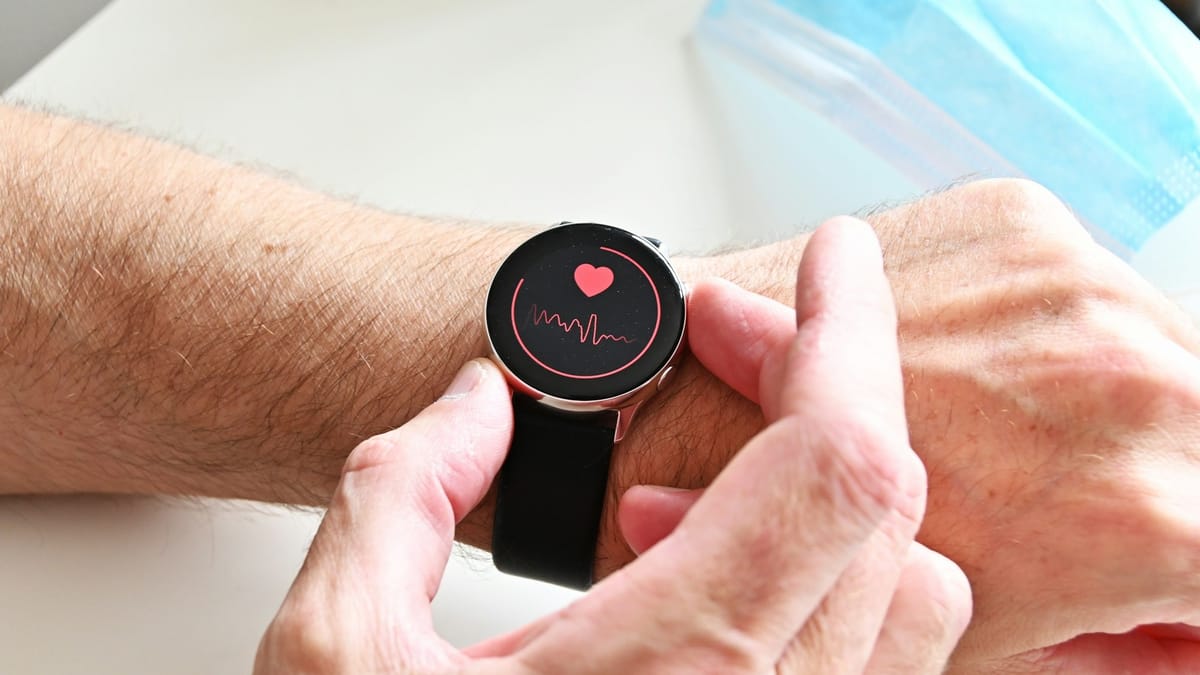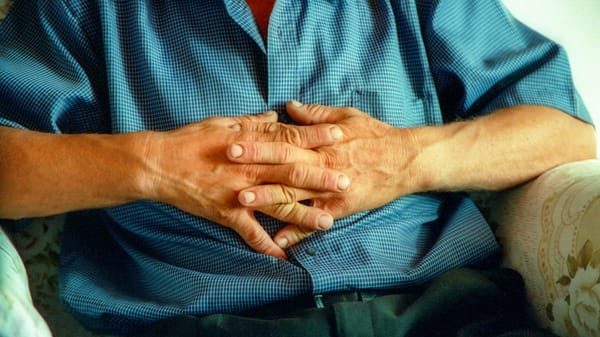Heart Health Trends 2025: A Cardiologist's Guide to Prevention and Longevity
Did you know nearly 1 in 4 adults will be obese by 2025, putting their hearts at serious risk? Discover the latest cardiologist insights, simple lifestyle shifts, and practical strategies to protect your heart for years to come.

Did you know that by 2025, nearly 1 in 4 adults worldwide will be classified as obese, a figure directly tied to soaring rates of cardiovascular disease? Behind this statistic lies a silent epidemic reshaping the way cardiologists approach prevention, treatment, and long-term heart health.
In this week’s expert analysis, we step into the shoes of a board-certified cardiologist to uncover the most urgent heart health trends of 2025. From the growing obesity-CVD crisis to groundbreaking lifestyle interventions backed by fresh American Heart Association (AHA) data, this article explores how small, evidence-based shifts, like mindful eating, daily walks, and even prioritizing sleep, can radically reduce risk. But it’s not just about medical trends; it’s about reclaiming resilience in an era of chronic stress and sedentary living.
The question is clear: in a world where heart disease remains the #1 killer, are we ready to act differently to protect our hearts?
The Weight of the Matter: How Obesity Shapes Heart Health
Obesity has long been viewed as a cosmetic issue, but in 2025, cardiologists agree it’s one of the most powerful predictors of cardiovascular disease. The numbers are staggering: excess body fat doesn’t just strain the heart mechanically, it sparks inflammation, disrupts hormones, and accelerates the processes that lead to clogged arteries and high blood pressure. In short, carrying too much weight places the heart under constant siege, and the ripple effects are seen in rising rates of heart failure, arrhythmias, and even sudden cardiac events.
What’s particularly alarming is how this epidemic is spreading. According to the latest AHA data, obesity rates are climbing not only in adults but also in children and adolescents, setting up future generations for a lifetime of cardiovascular risk. That means the conversation is no longer about “looking fit,” but about preventing a preventable crisis. Yet, here’s the hopeful part: even small lifestyle shifts can dramatically lower risk. Cardiologists are seeing success with patients who adopt practical, sustainable changes, like practicing portion control instead of restrictive dieting, choosing plant-forward meals over heavily processed foods, and walking briskly for just 30 minutes a day. These habits may seem modest, but research shows they reduce inflammation, improve blood pressure, and help regulate blood sugar, all vital for heart protection.
Obesity’s role in heart health isn’t just physical; it’s deeply tied to emotional well-being. Stress, poor sleep, and sedentary routines create a cycle that makes weight management harder. That’s why 2025’s most effective heart health strategies aren’t about quick fixes, but about integrating resilience into daily life. Mindful eating, structured routines, and even digital tools like heart health apps are empowering people to make steady progress.
The truth is, heart health in 2025 isn’t about perfection, it’s about prevention. Tackling obesity doesn’t require dramatic overhauls or punishing exercise regimens. Instead, it requires awareness, consistency, and the willingness to trade “all-or-nothing” thinking for small, meaningful steps. As cardiologists remind us: every pound lost, every mindful meal, and every walk taken adds up to real protection against cardiovascular disease. The weight of the matter isn’t just about pounds, it’s about lightening the burden on the heart, one choice at a time.
Prevention in Motion: Small Daily Habits with Big Heart Rewards
When most people hear the word “prevention,” they picture complicated diets, expensive gym memberships, or endless lists of rules. But in 2025, cardiologists are shifting the narrative: prevention is no longer about perfection, it’s about consistency. And surprisingly, it’s the smallest, most repeatable habits that are proving to be the strongest shields against cardiovascular disease.
The American Heart Association’s 2025 data highlights something powerful: walking for just 30 minutes a day can lower blood pressure as effectively as certain medications in mild cases of hypertension. Add to that the calming benefits of mindfulness or meditation, and you’ve got a potent duo for protecting the heart without even stepping into a clinic. These are not abstract lifestyle suggestions; they’re evidence-based practices reshaping how cardiologists talk to patients about heart health. Daily movement works wonders because it improves circulation, strengthens the heart muscle, and supports weight management. But the benefits extend beyond the physical. Patients who incorporate brisk walks into their routines often report lower stress levels, better sleep quality, and sharper mental focus. In an age where chronic stress is a known accelerator of cardiovascular disease, these emotional wins matter just as much as the physical ones.
Mindfulness, too, has entered the mainstream of cardiology discussions. Studies now show that consistent mindfulness practice reduces cortisol, the body’s primary stress hormone, which otherwise keeps blood pressure elevated and arteries inflamed. For many patients, this looks less like meditating in silence for hours and more like practicing breathing exercises before bed, listening to calming audio during commutes, or simply eating meals without distraction.
Together, these micro-habits represent a transformation in prevention: a shift away from fear-based prescriptions toward empowering, daily actions that anyone can do. Cardiologists emphasize that prevention doesn’t have to mean radical life changes, it means weaving heart-friendly rituals into the fabric of everyday life.
The key takeaway? Heart health is built one choice at a time. A short walk after dinner, five minutes of mindful breathing, choosing water over soda, none of these feel groundbreaking in isolation, but collectively, they form the strongest armor against heart disease. In 2025, the most revolutionary prevention strategies are also the simplest. And that’s good news, because it means better heart health is literally just a few steps away.
The Hidden Heart Medicine: Sleep and Connection as Lifelong Protectors
When most people think of heart health, they picture cholesterol numbers, blood pressure cuffs, or jogging on a treadmill. But in 2025, cardiologists are shining a light on two often-overlooked factors that may be just as critical: sleep and social connection. Emerging research suggests that how well you rest and who you surround yourself with could be as powerful for your heart as diet and exercise.
Sleep, once dismissed as a luxury, is now recognized as a non-negotiable pillar of cardiovascular health. Studies show that adults who regularly get fewer than six hours of sleep are at significantly higher risk of hypertension, arrhythmias, and heart attacks. Poor sleep disrupts hormone balance, increases stress hormones, and keeps blood vessels in a constant state of tension. By contrast, consistent, high-quality rest allows the heart to recover, blood pressure to stabilize, and inflammation to decrease. In fact, AHA’s 2025 update formally lists “restorative sleep” as a cornerstone of heart health guidelines for the first time.
Equally striking is the role of social connection. Loneliness is no longer considered just an emotional burden; it’s now labeled a cardiovascular risk factor. Isolated individuals face higher rates of hypertension, elevated stress, and poor recovery after cardiac events. Conversely, strong social ties, whether through family dinners, walking groups, or community networks, appear to buffer stress, improve adherence to healthy habits, and even lengthen life expectancy. Cardiologists now encourage patients to invest as much in relationships as they do in physical exercise.
What makes these insights so transformative is their accessibility. You don’t need expensive equipment or radical programs to benefit. Simple steps, like aiming for a consistent bedtime, limiting screen use at night, or calling a friend instead of scrolling through social media, are proving to be powerful prescriptions for heart resilience.
In 2025, the science is clear: the heart doesn’t just beat to the rhythm of blood flow; it also beats to the rhythms of rest and connection. Sleep restores the body, while relationships restore the spirit. Together, they provide a protective shield that no supplement or fad diet can replicate. For anyone looking to protect their heart, the advice is surprisingly human: rest well, and don’t go it alone.
The Future of Heart Care: From Personal Awareness to Precision Medicine
Heart health in 2025 is no longer just about diet and exercise, it’s about harnessing new tools and technologies that make prevention smarter, earlier, and more personalized than ever before. Cardiologists are blending time-tested wisdom with cutting-edge science, creating a future where patients can take charge of their heart health in ways that were unimaginable a decade ago.
Wearable devices now track more than just steps; they monitor heart rhythms, blood pressure, and even early signs of sleep apnea, sending alerts straight to your phone, or to your doctor. Genetic testing is revealing predispositions to cardiovascular disease long before symptoms appear. And digital health apps are making it easier to build habits, log nutrition, and even practice guided stress reduction, right from your pocket.
But here’s the thing: none of these innovations replace the basics. They amplify them. A smartwatch can remind you to walk, but it won’t move your legs for you. A health app can suggest recipes, but you’re still the one choosing what to put on your plate. That’s why cardiologists emphasize that technology works best when combined with self-awareness.
Here’s a quick Heart Awareness Quiz to guide you:
- Do I know my latest blood pressure and cholesterol numbers?
- Do I use any tool (app, wearable, journal) to track my health habits?
- Am I confident in my ability to manage stress without unhealthy crutches?
- Do I prioritize quality sleep as part of my health routine?
- Have I talked to my doctor about my family history of heart disease?
If you answered “no” to more than two, it may be time to explore how technology, or a conversation with your cardiologist, can fill in the gaps.
The exciting truth is that the future of heart care is becoming deeply personal. Prevention isn’t just about following generic advice; it’s about tailoring strategies to your own biology, lifestyle, and goals. From sleep trackers to stress management apps, from genetic insights to personalized fitness plans, the possibilities for protecting your heart have never been greater.
Ask your cardiologist how new tools, from wearables to risk assessments, can help you create a personalized prevention plan for your future.
When Heart Health Hit Home
Marlowe had always considered themselves relatively healthy. Sure, they skipped the gym more than they went, and takeout dinners were a weekly staple, but heart problems? That felt like something “other people” had to worry about. It wasn’t until their annual check-up that reality hit. The doctor gently explained that Marlowe’s blood pressure was creeping up, cholesterol was borderline, and, most surprisingly, their resting heart rate was higher than it should be for someone in their early thirties.
At first, Marlowe felt overwhelmed. How had things gotten so serious without noticing? But the cardiologist didn’t just hand over prescriptions, they handed over a roadmap. Together, they talked about small, actionable changes: swapping soda for sparkling water, taking 20-minute walks after work, practicing mindfulness to manage stress, and tracking sleep patterns. It wasn’t a crash course in dieting or extreme workouts, it was about reclaiming daily habits in a way that felt realistic.
A few months in, Marlowe noticed subtle but meaningful shifts. Evening walks became a chance to decompress rather than just exercise. Mealtime became mindful rather than rushed. Sleep improved, and for the first time in years, Marlowe felt energized in the mornings. Most importantly, at the next check-up, the numbers reflected these choices, blood pressure stabilized, cholesterol improved, and the cardiologist smiled with pride.
For Marlowe, heart health stopped being an abstract statistic. It became tangible, personal, and ultimately empowering, a reminder that prevention isn’t just medical advice, it’s a lifestyle you actively choose every day.
Your Top Questions Answered
1. How can I prevent heart disease naturally?
Preventing heart disease naturally involves adopting a heart-healthy lifestyle. Regular physical activity, such as brisk walking or cycling, helps maintain a healthy weight and lowers blood pressure. A balanced diet rich in fruits, vegetables, whole grains, and lean proteins supports heart health. Avoiding tobacco, limiting alcohol intake, and managing stress through mindfulness or relaxation techniques are also crucial. Regular check-ups to monitor blood pressure, cholesterol, and blood sugar levels can help detect potential issues early.
2. What are the early signs of heart disease?
Early signs of heart disease can be subtle and often go unnoticed. Common symptoms include chest discomfort, shortness of breath, fatigue, dizziness, and irregular heartbeats. Some individuals may experience nausea or pain radiating to the arm, jaw, or back. It's important to note that women may experience different symptoms than men. If you notice any of these signs, especially if they persist or worsen, consult a healthcare professional promptly.
3. Is high blood pressure a risk factor for heart disease?
Yes, high blood pressure (hypertension) is a significant risk factor for heart disease. It forces the heart to work harder than normal, leading to damage of the arteries over time. This can result in the thickening of the heart muscle and narrowing of the blood vessels, increasing the risk of heart attack, stroke, and heart failure. Managing blood pressure through lifestyle changes and, if necessary, medication is essential for heart health.
4. Can stress contribute to heart disease?
Chronic stress can contribute to heart disease by increasing blood pressure and promoting unhealthy behaviors such as poor diet, physical inactivity, and smoking. Stress activates the body's "fight or flight" response, releasing hormones that can raise heart rate and blood pressure. Over time, these effects can damage the heart and blood vessels. Incorporating stress management techniques like meditation, yoga, and regular physical activity can help mitigate these risks.
5. How does diet affect heart health?
Diet plays a crucial role in heart health. Consuming a diet high in saturated fats, trans fats, and cholesterol can raise blood cholesterol levels, increasing the risk of heart disease. Conversely, a diet rich in fiber, antioxidants, and healthy fats (such as those found in olive oil, nuts, and fish) can help lower cholesterol levels and reduce inflammation, supporting overall heart health. Limiting sodium intake is also important to maintain healthy blood pressure.
Key Takeaways
- Obesity is a major heart risk: Excess weight increases inflammation, blood pressure, and cholesterol, directly contributing to cardiovascular disease.
- Small lifestyle changes matter: Daily habits like portion control, plant-based meals, and short walks can significantly reduce heart risk.
- Exercise protects both body and mind: Brisk walks or moderate physical activity lower blood pressure and improve mental resilience against stress.
- Mindfulness reduces cardiovascular strain: Stress management through meditation, breathing exercises, or mindful routines supports heart health.
- Sleep is a heart shield: Consistently getting 7–8 hours of quality sleep lowers blood pressure, reduces inflammation, and improves recovery.
- Social connections are protective: Strong relationships buffer stress, promote healthy behaviors, and are linked to lower cardiovascular risk.
- Self-assessment empowers prevention: Simple quizzes or tracking tools help identify risk factors early and guide proactive lifestyle changes.
- Technology amplifies prevention: Wearables and apps allow monitoring of heart rate, blood pressure, sleep, and habits for personalized care.
- Holistic prevention is more effective than quick fixes: Combining diet, movement, sleep, stress management, and social support builds long-term heart resilience.
- Professional guidance is essential: Regular check-ups and consultations with a cardiologist ensure early detection and tailored interventions.
Conclusion
The landscape of heart health is evolving faster than ever. From the mounting obesity crisis to the proven power of simple daily habits, sleep, social connections, and personalized technology, it’s clear that protecting your heart requires a holistic, informed approach. Cardiologists today are not just treating disease, they’re empowering patients with tools, knowledge, and strategies that make prevention both practical and achievable.
The common thread across all these trends is choice. Every walk taken, every mindful meal, every night of quality sleep, and every meaningful connection strengthens the heart’s resilience. Modern innovations, from wearables to digital health apps, don’t replace personal responsibility; they amplify it, helping you track progress, uncover risks early, and engage proactively with your healthcare team.
Ultimately, heart health isn’t about perfection or extreme measures. It’s about consistent, intentional steps that build long-term protection. The more informed and proactive you are today, the stronger your heart will be tomorrow. Your cardiovascular future is literally in your hands, armed with knowledge, supported by science, and guided by expert insight, you can make choices that will keep your heart thriving for years to come.
References
https://pubmed.ncbi.nlm.nih.gov/40675447/
https://pubmed.ncbi.nlm.nih.gov/39866113/
https://pubmed.ncbi.nlm.nih.gov/39270739/
https://pmc.ncbi.nlm.nih.gov/articles/PMC12356496/
https://pmc.ncbi.nlm.nih.gov/articles/PMC9061634/
https://www.who.int/news-room/fact-sheets/detail/cardiovascular-diseases-%28cvds%29
https://world-heart-federation.org/what-we-do/prevention/
This article was written by Lucía Romero Lastra, a seasoned writer and editor with expertise in crafting engaging and informative articles




